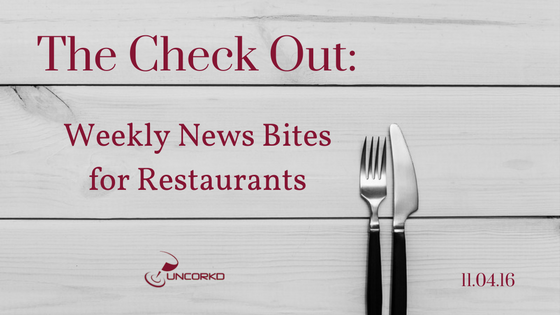
Every Friday Uncorkd compiles the top restaurant and beverage industry news and opinions that had us talking. Here are the must-read stories from October 29th – November 4th.
Restaurant News
Slow seasons affect restaurants at different points of the year. You can eliminate your slow season but adjusting your marketing strategy. It takes some creativity and persistence, buy can avoid seasonal depressions and beat your slow months.
In case you missed it last week, here was Uncorkd’s featured item: How to Bullet Proof Your Menu with Menu Engineering. Combining the revenue building strategy of menu engineering with menu analytics will help you build a menu that can’t lose.
Spirits and Cocktail News
Some whiskey experts believe that we are living in an amber-hued whiskey bubble. All bubbles are bound to burst, but, is there actually a bourbon market bubble? If so, it could mean a significant drop in whiskey prices when it bursts.
The least exciting liquor smuggling case of all time looks to be nearing its conclusion. 5 months after Republic National Distributing Co. was indicted on federal charges for liquor smuggling, the charges have been dismissed. But if you need your rum running fix, another case brought against national distributors for alleged liquor smuggling is still in court.
When it comes to the origins of classic cocktails, do you prefer the truth or a good story? Well, the yarn spun behind Louisville’s Seelbach Hotel and its signature drink has turned out to be a hoax. The barman, Adam Seger, responsible for the tall tale has come clean and confessed that he fabricated the story of the Seelbach cocktail.
Wine News
Wine scoring is a flawed system. Ratings proffered by a single taster will be eternally swayed by the taster’s personal preferences and a wine score reveals more about the taster than the wine. But a study of wine scores performed by Wine Curmudgeon revealed a bias that favors red wines over whites. Yes, the study, which analyzed data dating back to the 1970s, found that red wines, regardless of variable, score higher on average than whites do.
